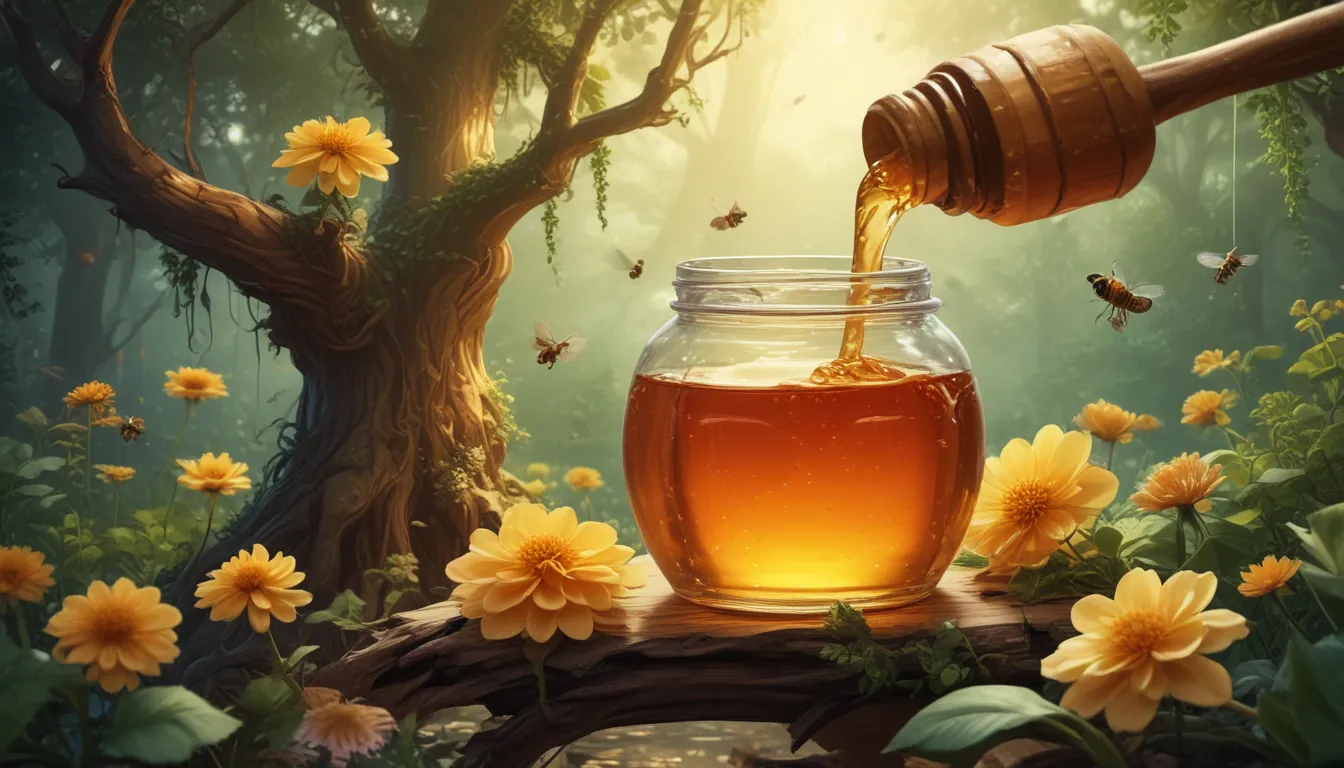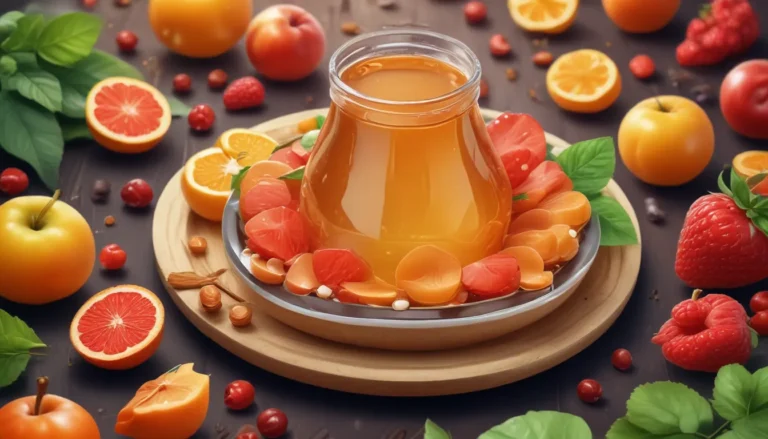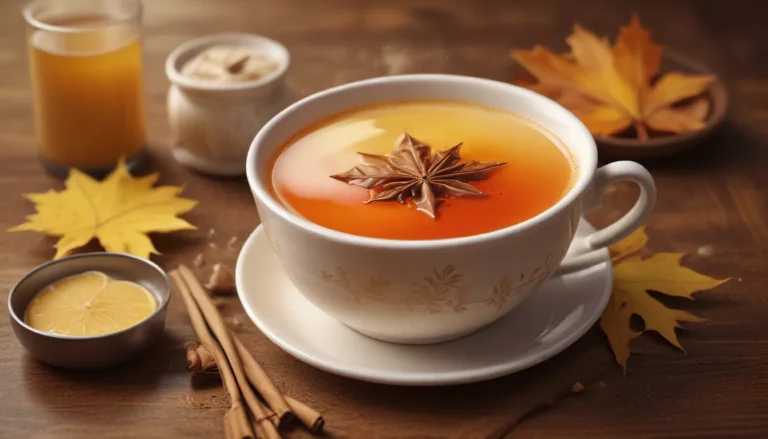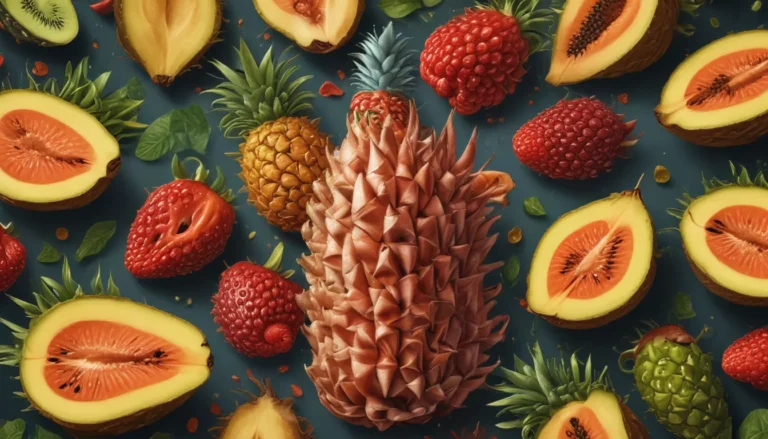The pictures in our articles might not always show exactly what the text is talking about. We use these images to make the article more interesting and eye-catching. They are there to add to the text, but not to replace it or show every detail.
Honey is a gift from nature that has captivated taste buds and nourished bodies for centuries. This golden elixir not only delights our senses with its delectable taste but also offers a myriad of health benefits and an intriguing production process. From its formation in the hive to the wide array of flavors and colors it comes in, honey is truly a unique and versatile ingredient. In this article, we will delve into 19 interesting facts about honey that will leave you buzzing with excitement. So sit back, grab a spoonful of honey, and get ready to explore the enchanting world of this natural wonder.
The Buzz About Honey:
- Honey is a natural sweet substance made by bees from flower nectar.
- Bees are crucial for pollination and ecosystem balance.
- Honey has been used for thousands of years and has cultural significance in various traditions.
Honey: Nature’s Sweetest Creation
Honey is a natural sweet substance produced by bees. Bees collect nectar from flowers and then convert it into honey through a process of regurgitation and evaporation. This fascinating transformation results in the golden elixir that we know and love.
A Timeless Treasure
Honey has been utilized by humans for various purposes for centuries. It has served as a food source, a medicine, and even as a form of currency in some ancient civilizations. Its rich history reflects its enduring popularity and versatility.
Honey: The Eternal Delight
One of the most remarkable aspects of honey is its incredible shelf life. Due to its low moisture content and acidic pH level, honey never spoils. Archaeologists have discovered pots of honey in ancient Egyptian tombs that are over 3,000 years old and still perfectly edible!
The Rainbow of Honey
In the United States alone, there are over 300 different types of honey. Each type of honey has a unique flavor profile, color, and aroma depending on the flowers from which the bees collect nectar. This variety adds to the allure of honey as a culinary ingredient.
The Nutrient Powerhouse
Honey is not just sweet; it is also packed with nutrients. It contains various vitamins, minerals, and antioxidants that are beneficial for our health. Honey is a good source of energy and can help boost the immune system.
The Healing Elixir
Honey's antibacterial properties make it a natural remedy for wounds and infections. The acidic pH level and enzymes present in honey create an environment that is inhospitable to bacteria, making it a versatile healing agent.
Soothing Sweetness
The smooth and viscous texture of honey can provide temporary relief from throat irritation and coughing. Mixing honey with warm water or tea can help soothe a sore throat and alleviate discomfort.
Pure and Unprocessed
Raw honey is the purest form of honey, as it is unfiltered and unpasteurized. This means that it retains all of its natural enzymes, pollen, and flavor. Raw honey is considered more nutritious than processed honey.
Guardians of Pollination
Honeybees play a vital role in pollinating plants, including many crops that humans rely on for food production. The decline in bee populations is a serious environmental concern that highlights the importance of these pollinators.
The Sweet Substitute
Compared to refined sugar, honey has a lower glycemic index. This means that it has a lower impact on blood sugar levels, making it a preferable sweetener for people with diabetes or those looking to maintain steady energy levels.
A Multifaceted Medicine
Throughout history, honey has been used in traditional medicine to treat various ailments. It has been employed as a remedy for digestive issues, skin problems, and even allergies. Its healing properties have stood the test of time.
Nature’s Artistry: Honey’s Colors and Textures
Honey can vary in color and texture, ranging from light amber to dark brown. These variations are due to the different flowers from which bees collect nectar. The diverse colors and textures of honey add to its charm as a natural sweetener.
The Culinary Magic of Honey
In addition to being a sweetener, honey is a versatile ingredient that can be used in marinades, salad dressings, and even beauty products. Its natural properties make it a valuable and multi-purpose ingredient in the kitchen.
A Soothing Balm for Inflammation
Honey contains antioxidants and compounds that possess anti-inflammatory properties. It has been used both externally and internally to reduce inflammation and promote healing in the body.
Supporting Sustainable Practices
Honey production supports the beekeeping industry, providing livelihoods for many people around the world. By purchasing honey from local beekeepers, we contribute to the sustainability of the industry and support bee conservation efforts.
Nectar of Cultural Traditions
Honey has been a symbol of sweetness, love, and purity in various cultures and religious traditions. It is often used in ceremonies, celebrations, and rituals, reflecting its enduring cultural significance.
Harmony in Nature: Bees and Ecosystem Balance
Bees are not just honey producers; they are essential pollinators for most flowering plants. Without bees, many plant species would struggle to reproduce, leading to a decline in biodiversity. Protecting bees is crucial for maintaining ecosystem balance.
Conclusion: Sweetness Unveiled
In conclusion, honey is not only a delicious natural sweetener but also a treasure trove of health benefits and cultural significance. Its antioxidant properties, soothing effects, and culinary versatility make it a must-have staple in any pantry. Remember to choose raw, unprocessed honey to enjoy the full benefits of this golden elixir. Whether you use it in your morning oats, as a natural face mask, or simply indulge in a spoonful of sweetness, honey is nature's sweetest gift.
FAQs: Unveiling the Mysteries of Honey
- Is honey healthier than sugar?
-
Honey is often considered a healthier option than refined sugar due to its trace amounts of vitamins, minerals, and antioxidants.
-
Can honey help with allergies?
-
Some individuals report a reduction in allergy symptoms after regularly consuming local raw honey, although scientific evidence is limited.
-
How should I store honey?
-
Honey should be stored in a cool, dry place away from direct sunlight and tightly sealed to maintain its quality.
-
Can honey be given to infants?
-
Honey should not be given to infants under one year of age due to the risk of botulism.
-
Can diabetics consume honey?
-
Diabetics should consume honey in moderation as it can affect blood sugar levels.
-
How long does honey last?
-
Properly stored honey can last indefinitely, although it may crystallize over time.
-
Can honey be used as a skincare ingredient?
-
Yes, honey's moisturizing and antibacterial properties make it a popular choice for skincare.
-
Can honey be used as a substitute for sugar in baking?
- Honey can be used as a substitute for sugar in baking, but adjustments to the recipe may be necessary due to its different properties.
Honey's allure extends far beyond its sweetness, offering a wealth of benefits and cultural significance. Exploring the world of honey unveils a treasure trove of knowledge that leaves us in awe of this golden elixir. Embrace the enchantment of honey and let its natural wonders inspire you on a journey of discovery and delight. Nature's sweetest gift awaits, ready to enrich your life with its golden touch.






